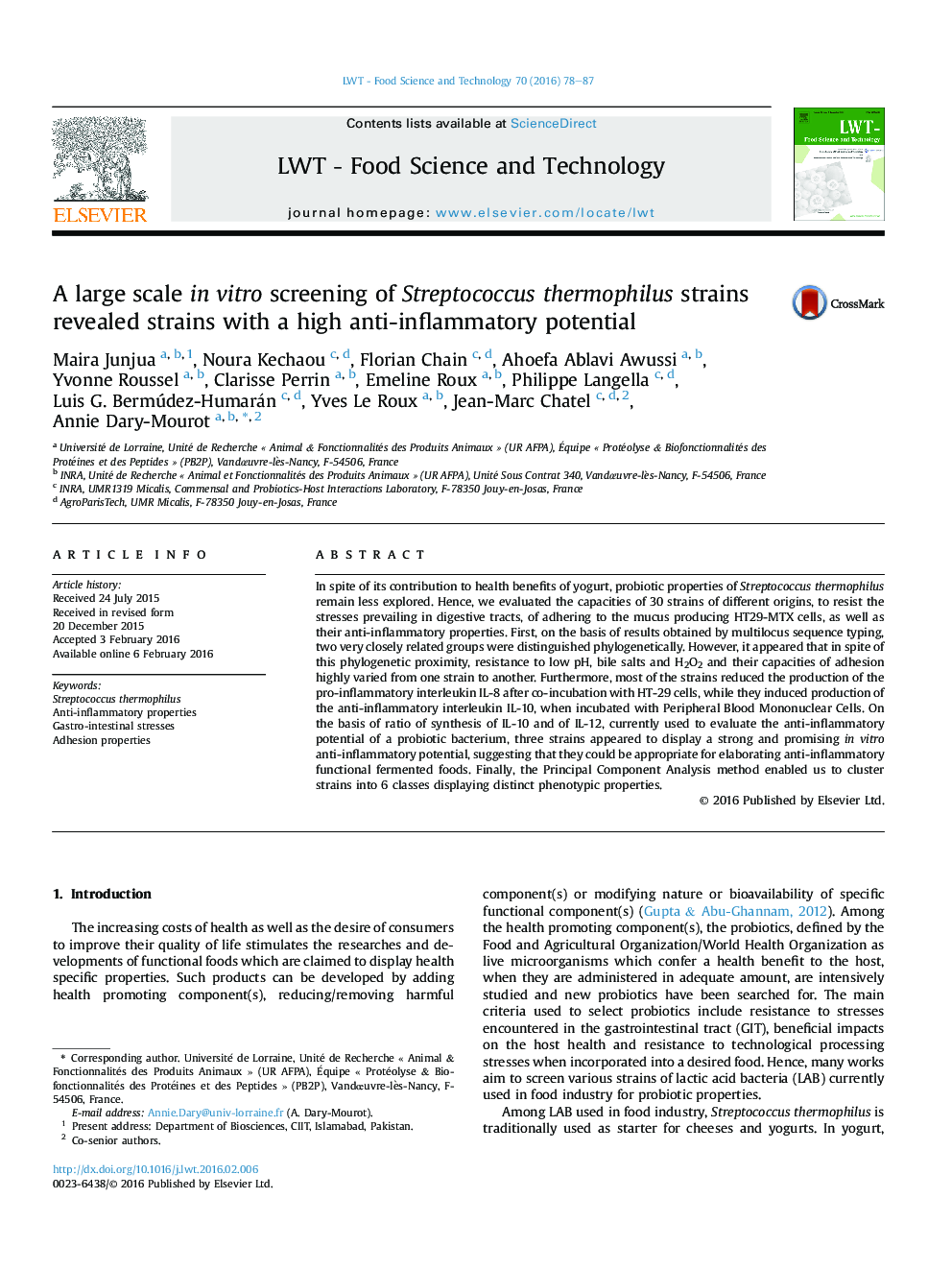| Article ID | Journal | Published Year | Pages | File Type |
|---|---|---|---|---|
| 4563570 | LWT - Food Science and Technology | 2016 | 10 Pages |
•In vitro high anti-inflammatory potential of Streptococcus thermophilus.•Variable adhesion capacities of S. thermophilus.•Variable resistance of S. thermophilus to gastrointestinal stresses.•High phenotypic variability versus low genetic variability.
In spite of its contribution to health benefits of yogurt, probiotic properties of Streptococcus thermophilus remain less explored. Hence, we evaluated the capacities of 30 strains of different origins, to resist the stresses prevailing in digestive tracts, of adhering to the mucus producing HT29-MTX cells, as well as their anti-inflammatory properties. First, on the basis of results obtained by multilocus sequence typing, two very closely related groups were distinguished phylogenetically. However, it appeared that in spite of this phylogenetic proximity, resistance to low pH, bile salts and H2O2 and their capacities of adhesion highly varied from one strain to another. Furthermore, most of the strains reduced the production of the pro-inflammatory interleukin IL-8 after co-incubation with HT-29 cells, while they induced production of the anti-inflammatory interleukin IL-10, when incubated with Peripheral Blood Mononuclear Cells. On the basis of ratio of synthesis of IL-10 and of IL-12, currently used to evaluate the anti-inflammatory potential of a probiotic bacterium, three strains appeared to display a strong and promising in vitro anti-inflammatory potential, suggesting that they could be appropriate for elaborating anti-inflammatory functional fermented foods. Finally, the Principal Component Analysis method enabled us to cluster strains into 6 classes displaying distinct phenotypic properties.
